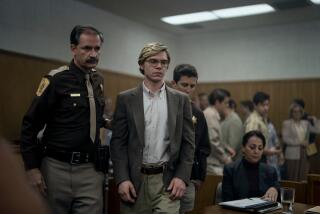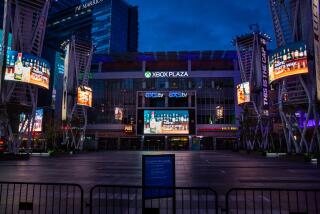Today’s Topic
- Share via
Three years ago last month, the Saturday stillness in South-Central Los Angeles was shattered by the sound of a pistol that took the life of an African American teen-ager named Latasha Harlins.
The shooting by Soon Ja Du, a Korean immigrant minding her husband’s store, over Harlins’ alleged attempt to steal a bottle of juice enraged the African American community and escalated neighborhood tensions.
When Korean American grocer Michael Kim shot a Latino teen-ager earlier this month--reportedly over a stolen bag of cookies--community leaders feared another outpouring of anger and hostility.
The exact opposite, however, appears to have happened. In the weeks since the April 2 shooting in Lynwood, community residents and leaders have been working together to defuse any racial conflicts.
Lynwood residents, responding in today’s In the Neighborhood, try to put the shooting into perspective and dispel any notions that it was racially motivated.
Yet, to some observers, it is race and racial stereotypes that prompts otherwise law-abiding citizens to commit acts of violence.
“It’s a sign of our times that people are being beaten and killed over comparative trivialities,” says Halford Fairchild, professor of psychology and black studies at Pitzer College. “It is symptomatic of the depravity of American society that values life in such a negative manner.”
Fairchild, who focuses primarily on the African American community, says that the only way to change those stereotypes is through education and the media. “We must change the way in which we project images in the popular culture,” says Fairchild.
That has been the sentiment of many African Americans who recently previewed two new television shows that focus on life in their community: Fox’s “South Central” and “704 Hauser” on CBS.
Today, in a special on TV and Stereotypes, residents of South-Central are divided on the authenticity of the show that bears the name of their neighborhood, although many say they related to the complex problems facing the single mother struggling to raise her family.
Sherrie Mazingo, chair of broadcast journalism at USC’s School of Journalism, criticizes many television portrayals of the black community, saying, “They still predominantly feature African Americans as comedic characters and basically objects of ridicule.”
Mazingo contends that the only reason the new shows exist is to appeal to viewer demographics. In fact, Nielson Media Research, which monitors the nation’s television viewing habits, reports that African Americans do tend to watch more TV than the general population.
Not everyone, however, sees negatives in TV programming directed at African Americans viewers.
“It is a sign of maturity that there can be so many shows and there can be so many viewpoints,” says Nick Brown, professor of film and television studies at UCLA. “I don’t think any show has to be a demographic replica of a community. It’s a work of fiction and should not be held to statistical accuracy.”
More to Read
Sign up for Essential California
The most important California stories and recommendations in your inbox every morning.
You may occasionally receive promotional content from the Los Angeles Times.













